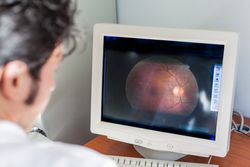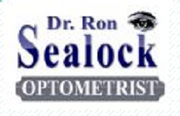
The National Eye Institute estimates more than two million Americans suffer from age-related macular degeneration (AMD)—the leading cause of vision loss in the country. Common among seniors, this condition occurs when the macula—located within the center of the retina—deteriorates and makes it difficult for people to process sharp, detailed images. While this damage cannot be reversed, it can be slowed if caught early through macula screening. Encouraging patients to take advantage of this test, Dr. Ron Sealock of Dothan, AL, highlights a few important facts to know.
Brief Guide to Macula Screening
What Does It Measure?
This test measures the density of the macular pigment. The lower the macular pigment optical density (MPOD), the higher the risk an individual may develop AMD.
What Is the Screening Process Like?
 Patients can generally complete the macula screening process within a few minutes. This noninvasive test uses a special device to capture the thickness of the macular pigments through the use of “heterochromatic flicker photometry.”
Patients can generally complete the macula screening process within a few minutes. This noninvasive test uses a special device to capture the thickness of the macular pigments through the use of “heterochromatic flicker photometry.”
When Should I Consider Scheduling a Test?
There is no set guideline for when to have your MPOD measured. However, this screening is a good idea for anyone who has a high risk of AMD or is approaching their senior years. The test is also beneficial for younger patients, as the results can help eye doctors track how an individual’s MPOD score changes over time.
What Happens if I Have a Low MPOD?
If detected early enough, individuals may be able to increase low MPOD scores with the support of ocular vitamins and other nutritional changes. If vision loss has already started to occur, eye doctors may prescribe supplements, medications, corrective eyewear, or laser therapy to slow the progression of AMD.
When you are concerned about your AMD risk, Dr. Ron Sealock is equipped to provide comprehensive, accurate macula screening at his optometry center in Dothan, AL. Committed to helping patients achieve clearer and more comfortable vision, Dr. Sealock can also test for many other issues, such as glaucoma and retinopathy. Whatever the results, he will work with you to form a customized treatment plan to improve sight and minimize complications. For more information about these services, visit this vision care specialist online. To schedule a screening or a general eye exam, call a friendly team member at (334) 793-9607.
About the Business
Have a question? Ask the experts!
Send your question

